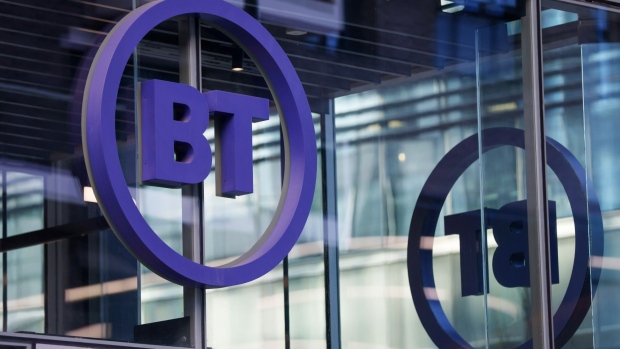Oct 18, 2022
BT Pension Says LDI Turmoil Sent Asset Values Down £11 Billion
, Bloomberg News

(Bloomberg) --
Asset values at BT Group Plc’s pension fund fell about £11 billion ($12.5 billion) in recent weeks as an investment strategy linked to UK government bonds roiled markets, prompting the Bank of England to intervene.
The disclosure is one of the first to show how derivatives linked to liability-driven investment strategies caused huge mark-to-market losses for pension funds. The chaos was triggered after the Conservative party’s uncosted mini budget sent gilt yields soaring, leading the central bank to introduce a temporary buying program to calm markets.
“Our hedges have performed as expected, and whilst the value of the scheme’s assets has fallen over this period, there has been no worsening in our estimated funding position,” Morten Nilsson, chief executive officer at the retirement pot, wrote in the annual report.
Mark-to-market losses on derivative positions related to liability-driven investment strategies may have reached £125 billion to £150 billion cumulatively since early August, analysts including Nikolaos Panigirtzoglou wrote in a note last week. Gilt yields have since rallied after the government announced on Monday that it will drop most of the tax cuts.
A BTPS spokeswoman did not immediately respond to a request for details on the nature of the hedging. The pot’s funding position, which compares the market value of assets with liabilities, was 92% at June 30.
“Volatility remains, and the situation will require continued monitoring, with an adverse move in the funding position potentially increasing adjusted leverage and triggering additional cash contributions,” Bloomberg Intelligence senior credit analyst Aidan Cheslin wrote in a note.
The annual report added that BT’s pension fund is “well prepared to react” to any change in control of the company, adding it would reassess covenants based on “any change of control impacting the corporate and capital structure” of the company. That follows French billionaire Patrick Drahi’s purchase of an 18% ownership stake in BT in 2021 and persistent speculation of a deal.
©2022 Bloomberg L.P.





